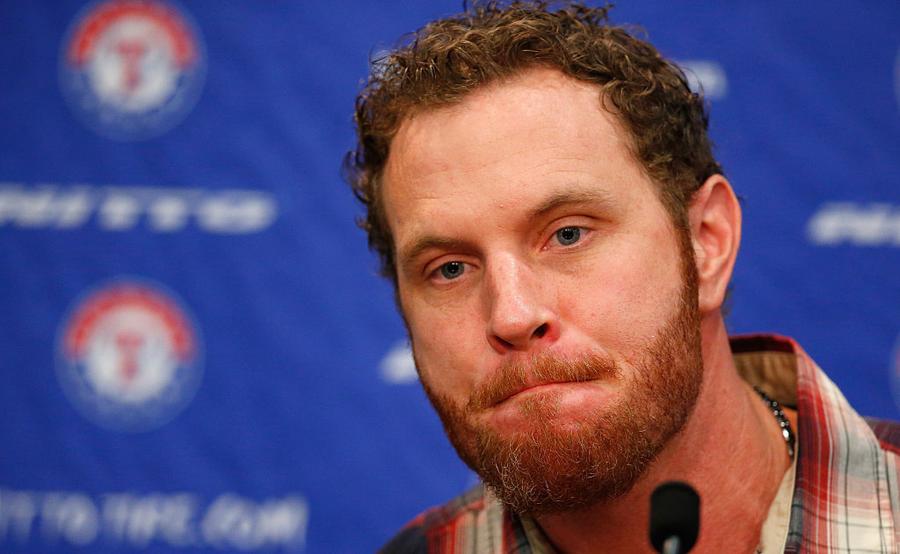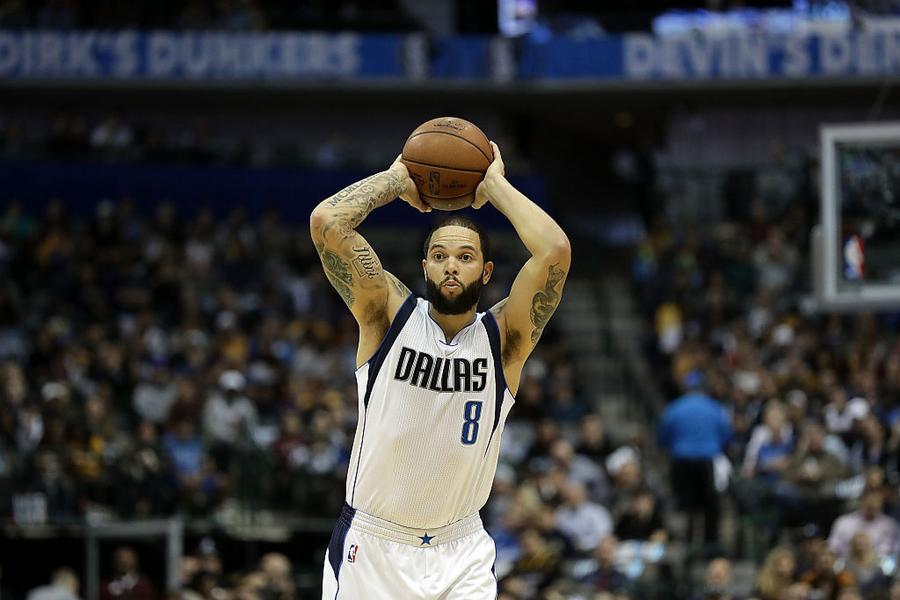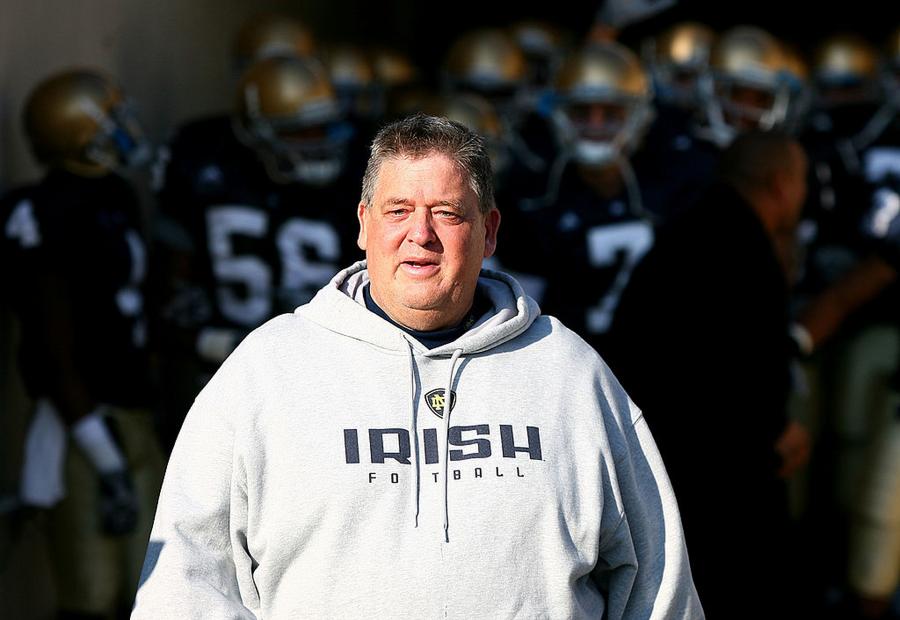It takes a special talent to make it as a professional athlete. Having the drive and determination is one thing, but there comes a time when it takes more than that to separate yourself from the pack. Out of hundreds of thousands of people who grow up playing, there are only a few hundred players in any given professional sport. It's a tremendous honor to don a team's jersey, if only for a little while.
Unfortunately, professional sports is a business, and when a player or coach isn't contributing to the team, they may find themselves off of the team pretty quickly. For most, it's as simple as getting cut and looking for employment elsewhere. But for a small group of players and coaches, they've perfected the art of having their old team continuing to pay them even though they're no longer on the team. In some cases, the old team is paying them while the new team they've signed with is also paying them. It's a dream scenario, and we're going to honor a few of the players and coaches who have been paid to go away.
Josh Hamilton – $68 million
For awhile, Hamilton was one of the best comeback stories in all of baseball. He struggled with drug and alcohol addiction and still managed to make five straight All-Star appearances while winning the 2010 American League MVP award. The Los Angeles Angels of Anaheim thought his play was good enough to give Hamilton a five-year, $125 million deal. Hamilton played for only two years in L.A., posting career-lows (at the time) in batting average while seeing his power numbers decline and his strikeouts remain high. The Angels weren't happy with his production, so they traded him back to the Rangers… while contributing $68 million of his remaining salary. Pretty hefty price to pay to get rid of someone. On top of all of that, when he left the Rangers, he criticized the Dallas-Fort Worth area as "not a true baseball town" and that it had "always been a football town."

Tom Pennington/Getty Images
Gilbert Arenas – $62 million
Arenas went from undrafted rookie to NBA star, never afraid to take and hit a big shot. In 2008, the Washington Wizards rewarded Arenas for his play with a six-year, $111 million contract. However, Arenas was involved in a locker room gun incident less than two years into that deal. After serving a 50-game suspension during the 2009-10 season, the Wizards traded Arenas and his hefty contract to the Orlando Magic. He didn't last long in Orlando, though – in an effort to avoid the luxury tax, the Magic amnestied Arenas in 2011 after he played just 49 games for the team. They still owed him $62 million, which Arenas agreed to spread out until 2016.
Michael Finley – $51.8 million
As Arenas's situation above demonstrates, the NBA amnesty's provision became a more common occurrence after the new collective bargaining agreement in 2011. Teams could buy out players in order to clear cap space, which was really a win-win for both sides: a player still got paid, but their former team wasn't tied to them as far as the salary cap went, so the team could sign other players using that space. But before all of that, Michael Finley set the bar for getting paid to go away. The Dallas Mavericks still owed Finley – who had averaged nearly 20 points a game over nine years with the team – $51.8 million for the remaining three years on his contract. Mavs owner Mark Cuban argued that he could save the team $90 million in the long run by paying the remainder of Finley's contract out over ten years, rather than keeping him on the team and facing the league's luxury tax.
Jose Reyes – $40 million
Reyes was arrested and charged with domestic violence after an altercation with his wife in Hawaii in October of 2015. The charges were eventually dropped after Reyes' wife refused to cooperate, but Reyes still served a 51-game suspension last summer for violating MLB's domestic violence policy. When he completed the suspension, the Rockies chose to designate him for assignment rather than put him back on the roster. As a result, the team had to eat $40 million in salary.
Deron Williams – $30 million
Williams has had a solid career in the NBA, though he butted heads with his former coach Jerry Sloan while with the Jazz and he's never really recovered. Injuries and age have slowed him a bit, too, but he can still contribute to an NBA roster. At least, the Cleveland Cavaliers hope so, as they plucked Williams off waivers. Even if he had not signed with anyone, he still would have picked up $30 million from TWO separate teams: $2.5 million from the Mavericks, who waived him earlier this year, and $27.5 million from the Brooklyn Nets, who let him go back in 2015.

Ronald Martinez/Getty Images
This past season, Fielder announced he would be unable to play baseball any longer because of multiple neck surgeries. He still has three years left on his contract, but he'll spend the entirety of it on the disabled list. The Rangers, by all accounts, will still pay Fielder his salary, but that's not why he's making this list – we won't fault someone for suffering a career-ending injury. Instead, we'll look at the Detroit Tigers, who traded Fielder to the Rangers in 2013. Detroit threw in $30 million to the deal for the Rangers to take him off their hands. Texas still owed Fielder $138 million over seven years, but getting a $30 million discount off a contract is nothing to sneeze at.
Bobby Bonilla – $29.8 million
Of course, we had to include the best deal a player has ever signed in the history of professional sports. Bobby Bonilla last played a major league game in 2001. Yet thanks to a very creative contract agreement, Bonilla agreed to delay the $5.9 million the New York Mets owed him in 1999 for twelve years, with interest. Beginning in 2011, the team would then pay out the money in equal increments over 25 years. The end result: the Mets are paying Bonilla about $1.2 million every year until 2036. He'll be in his 70s by the time he stops getting money from them. We can't think of any better way to save for your future.
Charlie Weis, $24.6 million
Charlie Weis had a successful run as offensive coordinator of the New England Patriots. He won three Super Bowl rings with the franchise, but the most impressive part of his career was that it's somehow allowed him to earn $24.6 million to not coach at two different schools. Notre Dame fired him in 2009 – his buyout included $6.6 million on the spot and several more million over the next six seasons. Weis also was fired as Kansas head coach in 2013 after going 6-22 over two seasons. The Jayhawks similarly bought out Weis' contract so that he couldn't coach, and finished paying him more than $5.6 million in December last year. Guess that old saying is true: It really is better to be lucky than good.

Jonathan Daniel/Getty Images
/2015/11/GettyImages-478664946.jpg)
/2017/05/coach.jpg)
/2017/10/GettyImages-94992169.jpg)
/2016/05/GettyImages-93483615.jpg)
/2015/05/weis.jpg)
/2016/11/GettyImages-599237592.jpg)
/2013/12/dan.jpg)
/2011/12/John-Mara-1.jpg)
/2020/08/gc-1.jpg)
:strip_exif()/2020/06/taylor.png)
/2011/12/Rooney-Mara1.jpg)
/2014/04/GettyImages-886617106.jpg)
/2020/03/favre.jpg)
/2010/12/kate-1.jpg)
/2022/10/peter-krause.jpg)
/2020/10/the-miz.png)
/2011/01/Aaron-Rodgers.jpg)
/2014/08/sp-1.jpg)
/2020/07/jared-kushner.jpg)
/2013/10/Bernadette-Peters-1.jpg)
/2010/03/emil.jpg)
/2016/01/Kirk-Cousins.jpg)
/2024/10/Jordan-Love-.jpg)